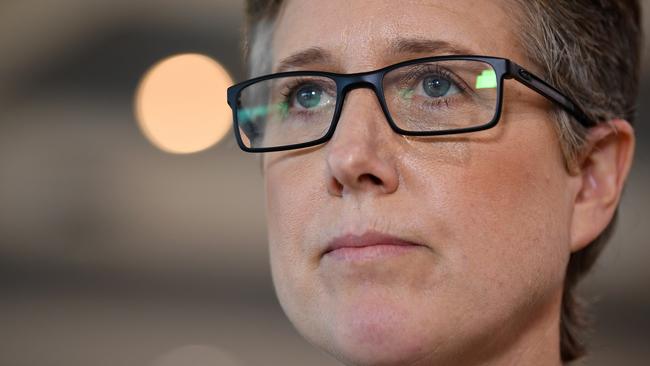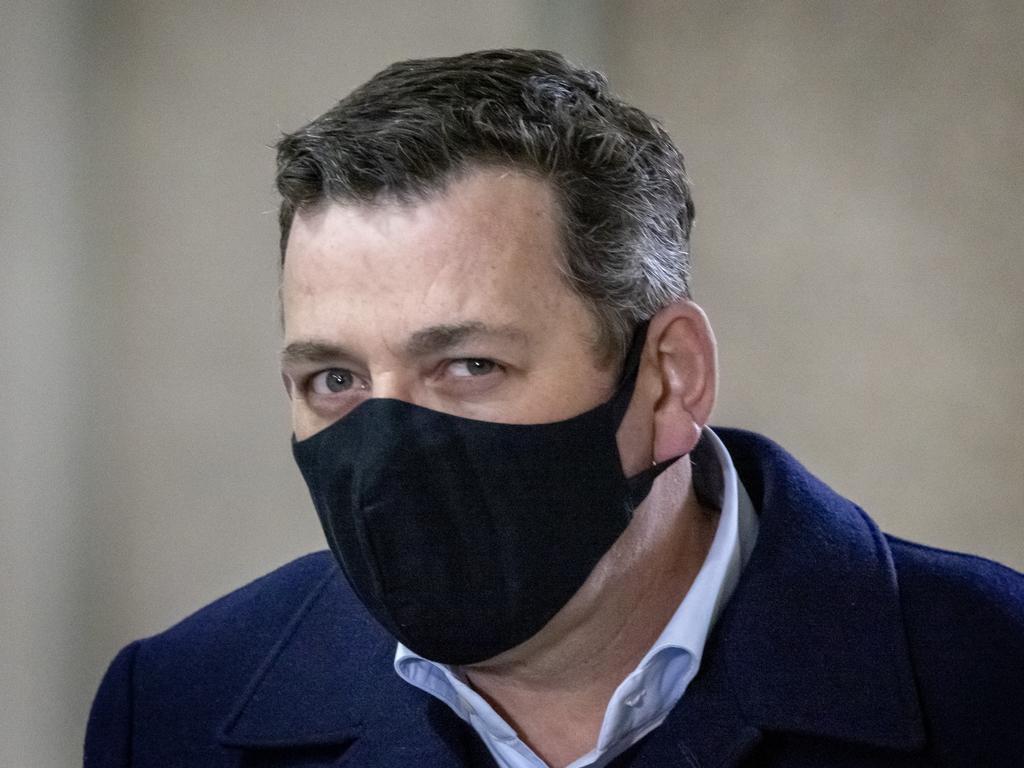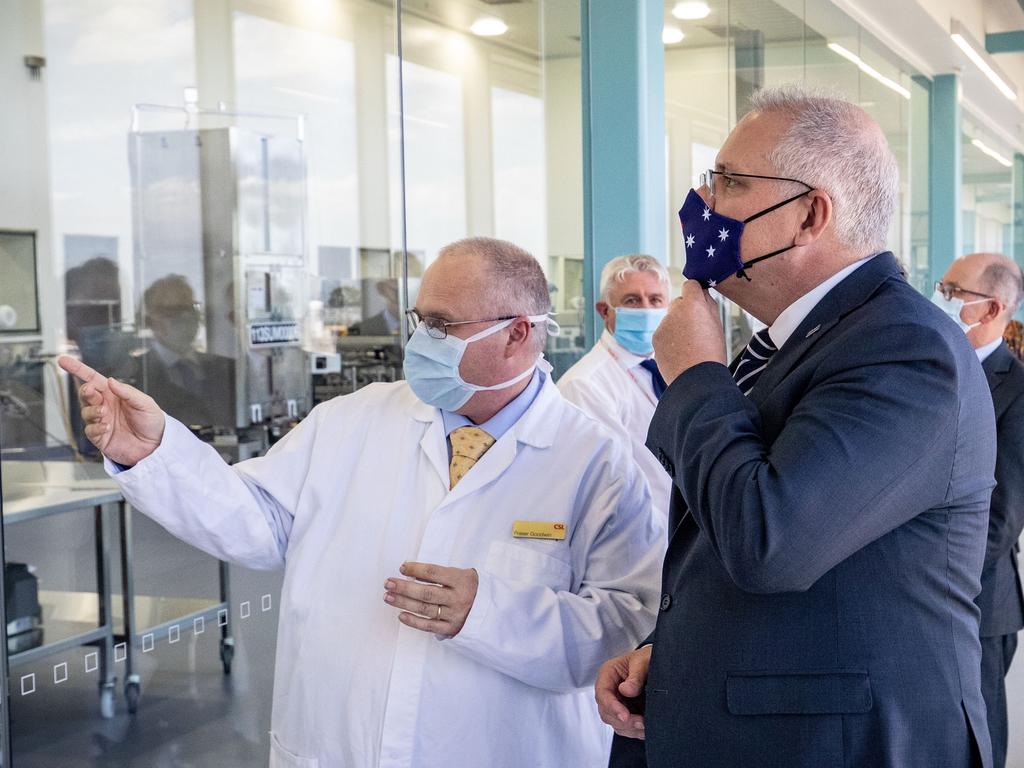‘Bosses must not have free rein on mandatory vaccines’
Scott Morrison and the national cabinet face urgent demands from business and unions to take control of workplace vaccinations.

Scott Morrison and the national cabinet face urgent demands from business and unions to take control of workplace vaccinations, with ACTU secretary Sally McManus warning the shifting of responsibility for mandatory jabs to employers is a “recipe for division, resentment and confusion”.
The Prime Minister will not endorse compulsory vaccination and has left individual employers to test in court the legality of any vaccine mandates they implement, telling parliament it was a matter for premiers to take the “necessary decisions” to thwart the Delta strain.
The push for greater guidance on vaccine mandates came as tensions flared on Wednesday at food processor SPC, the first business in Australia to make jabs compulsory, with the company accusing unions of creating “fear and confusion” among workers.
The Australian Manufacturing Workers Union said SPC had provided no clear answers to a list of 32 questions union officials had put to it about its “demand” that workers be vaccinated by the end of October.
AMWU national president Andrew Dettmer said the best way to progress the rollout was for the government, unions and employers to sit down and work out what was needed to bolster take-up while minimising risks to the community.
Ms McManus also said governments, business and unions needed to hold broad, high level talks on how to achieve an 80 per cent vaccination rate. She said employers should not be given free rein to make decisions on mandatory jabs.
“We have two paths to get to 80 per cent vaccination rates,” she said. “The first (is) to act in a united way – employers, unions and government – to support and encourage people to get vaccinated by ensuring adequate supply and easy access, removing barriers that exist for people without paid leave entitlements and an effective public health education campaign.
“The other choice appears to be the one the Prime Minister is taking, which is to leave it to individual employers to push or mandate the vaccine. This is a recipe for division, resentment and confusion, and undermines the role of health experts.”
Ms McManus’s predecessor as ACTU secretary through the 1980s and 90s, Bill Kelty, said the national cabinet’s decision not to involve itself in vaccine mandates was “not good enough”.
“In any great emergency, you have to bring business leaders and trade unions together. It’s what Roosevelt did. It’s what Churchill did,” he said. “The only answer to this problem is vaccination, vaccination, vaccination … there is a place for conscientious objectors. We must be kind. But they are not the focus. Governments need to get on with this vaccine rollout.”
The Fair Work Ombudsman was due to release updated guidance about vaccinations this week.
Since last year, there have been rolling discussions between government officials and unions on how to handle the pandemic and the issue of vaccinations, but an ACTU spokesman on Wednesday said the government had never raised the issue of employers mandating jabs.

Industrial Relations Minister Michaelia Cash pushed back against the union demands, arguing the labour movement was trying to “hijack” the debate over mandatory vaccines to criticise the government.
“I am surprised by the unions’ comments, considering the government has been holding numerous discussions and roundtables with business and unions on the response to the pandemic since early last year,” she said.
“It is disappointing that some parts of the union movement are now trying to hijack this productive relationship for their own political purposes, when they should be focused on encouraging their members to get vaccinated as soon as possible.”
Australian Industry Group chief executive Innes Willox on Wednesday rebuked unions for their concerns over compulsory jabs. “While there will be consultation with unions in the workplaces where they have members, at the end of the day the employer has the responsibility for workplace safety,” he said.
University of Adelaide law professor Andrew Stewart expressed concern the government was refusing to give any guidance to employers about whether they could seek to enforce mandatory vaccination of employees. “There are at least a couple of different options,” he said. “One might be making it clear that employers can’t make vaccination mandatory unless it’s in these particular circumstances, or they could say it’s OK for vaccinations to be made mandatory provided these exceptions are recognised or provided there is some level of flexibility. Right now, you’ve got businesses all over the country having to figure this out for themselves being given what is accurate but unhelpful legal advice, including by the Prime Minister.”

Mr Dettmer said discussions with former industrial relations minister Christian Porter on the issue last year had “just fizzled”.
“We are actively pursuing this issue of vaccination but the government for reasons best known to itself hasn’t finalised any of those discussions,” he said.
Business Council of Australia chief executive Jennifer Westacott said state governments had to lead the way on vaccine mandates for at-risk industries.
“We believe mandatory vaccinations should be done through public health orders, which can be made by the states. They need to be nationally consistent across the states,” she said.
The hospitality, retail and meat processing sectors on Wednesday all expressed interest in a higher level discussion about rolling out vaccines in the workplaces and clearing up advice on whether employers could make jabs compulsory.
Australian Hotels Association chief executive Stephen Ferguson said the current legal guidance was not clear.
“The government has referred us to the Fair Work Ombudsman and SafeWork Australia for advice on mandates, but unfortunately that advice is very grey,” he said.
Australian Meat Industry Council chief executive Patrick Hutchinson said that despite his industry being a first priority for vaccinations, the current system was not working.
“We have 80 per cent of our worksites with 0 to 40 per cent of the workers fully vaccinated, and we are in rollout category 1B,” he said.







To join the conversation, please log in. Don't have an account? Register
Join the conversation, you are commenting as Logout